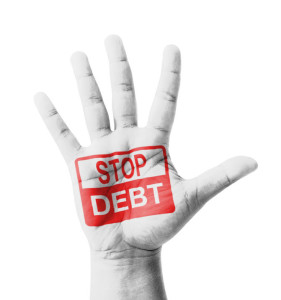The bankruptcy attorneys at South Tulsa Bankruptcy Law Office have helped Oklahoman’s utilize chapter 13 bankruptcy for debt relief. Chapter 13  will help you reorganize your unsecured debt. When you retain an attorney from Tulsa Bankruptcy Law Office we work to help you reduce your debts. This is done while working to preserve your lifestyle. Call (918)739-8984 or fill out this form to speak with a bankruptcy attorney today.
will help you reorganize your unsecured debt. When you retain an attorney from Tulsa Bankruptcy Law Office we work to help you reduce your debts. This is done while working to preserve your lifestyle. Call (918)739-8984 or fill out this form to speak with a bankruptcy attorney today.
Chapter 13 Bankruptcy Debt Relief:
Under Oklahoma State and federal law, unsecured and secured debts are dischargeable in chapter 13 bankruptcy. Unsecured debts are those that are not linked to property. Debts may consist of the following: medical bills. credit card debts, utility bills, collection agency accounts, student loans (only in a limited circumstances), business debts, tax penalties and unpaid taxes, unsecured loans, most judgments, and balances on repossessed property.
Secured debts are debts that are linked to property (collateral property). If you default on a loan, a creditor can seize the collateral given on exchange for the loan. This debt may consist of the following: home mortgage, car loans, store charges which contain a security agreement, and personal loans from finance companies in which you pledged personal property or real property in order to secure the loan.
Chapter 13 Eligibility Criteria:
There are several steps you must take to properly have your debts discharged under chapter 13 bankruptcy in Oklahoma. During your initial consultation with our bankruptcy attorney, the attorney will determine whether you are eligible for the discharge of your debts under chapter 13 bankruptcy.
First, the bankruptcy attorney will ask you whether or not you have filed for chapter 13 within the past 2 years. If you have, you will have to wait until this time period elapses.
If you have yet to file chapter 13, our attorney will then determine whether or not you meet the monetary threshold to file for bankruptcy relief. In Oklahoma, you are eligible to file for chapter 13 relief as long as your unsecured debts are less than $360,475 and secured debts are less than $1,081,400.
It your debts meet this monetary threshold, you will have to take the “means test” to see if you have enough disposable income for a chapter 13 repayment plan.
Disposable Income Counts:
The chapter 13 Bankruptcy means test requires you to calculate your current monthly disposable income. If your monthly disposable income is less than Oklahoma’s monthly median income for your specific family size, then your repayment plan will be for a 3 year period. If your monthly disposable income is greater than the median monthly income in Oklahoma, then your repayment plan will be for a 5 year period.
Prior to your bankruptcy petition filing, you must attend a credit counseling course. Under the Bankruptcy Abuse Prevention and Consumer Protection Act of 2005, all consumers who file for chapter 13 must take a credit counseling course within six months BEFORE filing a petition.
You must complete a course approved by the Department of Justice U.S. Trustee Program. You can take the course online, by phone, or in person. The course will review your current financial situation, alternate debt relief options besides bankruptcy, and a personal budget plan. Upon completing the course, you are presented a Certificate of Completion. You must file the Certificate of Completion with your bankruptcy petition.
Chapter 13 Bankruptcy Process:
Upon determining that you qualify to file for chapter 13 bankruptcy in Oklahoma, our attorney will begin to prepare your bankruptcy petition.
Our attorney will collect all of your financial information relevant to your petition such as a credit report, monthly bill statements, and bank account statements. An automatic stay enacts upon filing your petition. As a result, the automatic stay protects you from creditors collecting pre-existing debts from you. It also prohibits creditor harassment, wage garnishments, and possible foreclosure during your declaration of bankruptcy.
Filing for chapter 13 bankruptcy will temporarily postpone the foreclosure process. Thus, it will provide you with more time to pay any late mortgage payments. You must pay timely payments on the mortgage after bankruptcy filing. If you don’t do this the home forecloses.
Bankruptcy Files, What’s Next:
After filing your petition, a bankruptcy trustee aids you. The trustee oversees your case. The trustee also ensures your creditors are paid as much as possible prior to the discharge of your debts.
Your trustee will administer a “341 Meeting of Creditors”. At this meeting he will ask certain financial questions. If you have non-exempt property he has the authority to sell it and pay creditors. If you have only exempt assets there wont be anything for him to sell. More often then not you have only exempt assets.
After your creditor’s meeting the case sets for confirmation. At this hearing the trustee approves the payment plan. Normally you don’t attend the confirmation hearings. After approval, you make fixed payment to the bankruptcy trustee. This is done over a designated period of time. The trustee will distribute the payment to your creditors according to your plan. Your debts discharge upon the completion of all payments under your plan.
Free Bankruptcy Consultation:
For more information regarding chapter 13 in Oklahoma, contact our law office. Call (918)739-8984 or fill out this form to speak with a bankruptcy attorney today.
